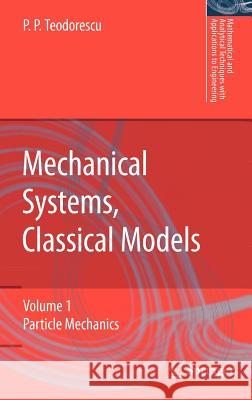Mechanical Systems, Classical Models: Volume 1: Particle Mechanics » książka
Mechanical Systems, Classical Models: Volume 1: Particle Mechanics
ISBN-13: 9781402054419 / Angielski / Twarda / 2006 / 778 str.
All phenomena in nature are characterized by motion; this is an essential property of matter, having infinitely many aspects. Motion can be mechanical, physical, chemical or biological, leading to various sciences of nature, mechanics being one of them. Mechanics deals with the objective laws of mechanical motion of bodies, the simplest form of motion. In the study of a science of nature mathematics plays an important role. Mechanics is the first science of nature which was expressed in terms of mathematics by considering various mathematical models, associated to phenomena of the surrounding nature. Thus, its development was influenced by the use of a strong mathematical tool; on the other hand, we must observe that mechanics also influenced the introduction and the development of many mathematical notions. In this respect, the guideline of the present book is precisely the mathematical model of mechanics. A special accent is put on the solving methodology as well as on the mathematical tools used; vectors, tensors and notions of field theory. Continuous and discontinuous phenomena, various mechanical magnitudes are presented in a unitary form by means of the theory of distributions. Some appendices give the book an autonomy with respect to other works, special previous mathematical knowledge being not necessary. Some applications connected to important phenomena of nature are presented, and this also gives one the possibility to solve problems of interest from the technical, engineering point of view. In this form, the book becomes we dare say a unique outline of the literature in the field; the author wishes to present the most important aspects connected with the study of mechanical systems, mechanics being regarded as a science of nature, as well as its links to other sciences of nature. Implications in technical sciences are not neglected."











